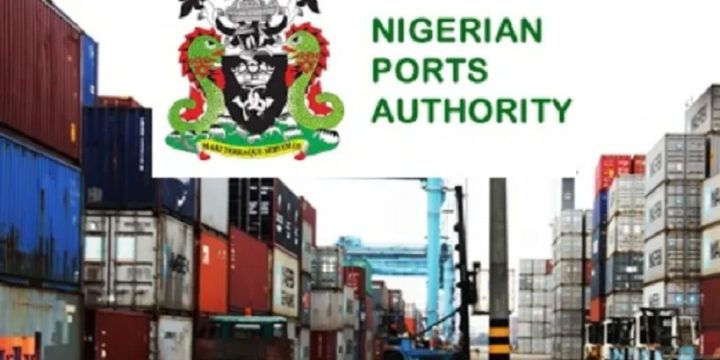The Nigerian Ports Authority (NPA) has reiterated that the electronic call-up system for truck movement into port terminals is a permanent measure designed to sustain order, efficiency, and transparency in port operations. This reaffirmation follows recent criticisms from some clearing agents and truck operators who expressed frustration over the perceived inefficiencies and alleged irregularities in the implementation of the system.
In a statement issued by the NPA management, the authority maintained that the call-up system, introduced under the “ETO” platform, has significantly reduced traffic congestion and operational chaos around the Apapa and Tin Can Island ports. The NPA emphasised that the system has come to stay as part of ongoing reforms to modernise Nigeria’s maritime logistics chain and promote seamless cargo evacuation.

According to the NPA, reverting to the pre-digital era of manual truck management would be counterproductive, considering the progress achieved in reducing gridlock and improving turnaround time for cargo operations. The statement read: “The electronic call-up system is one of our major success stories in port reform. It has improved efficiency, reduced human interference, and minimised extortion. We are fully committed to refining it, not abandoning it.”
The authority further noted that challenges experienced in the system’s rollout were not unexpected, given the complexity of port logistics in Lagos, but assured stakeholders that corrective measures are being implemented to address technical and operational bottlenecks. It added that the NPA is collaborating with relevant agencies, including the Lagos State Government, the Nigerian Shippers’ Council, and the Nigerian Police, to strengthen enforcement and ensure compliance.
Responding to allegations by clearing agents that the system favours certain operators, the NPA clarified that the process is automated and transparent, making it impossible for any manual manipulation of truck scheduling. “The digital system allocates entry based on booking sequence and available terminal space. We have zero tolerance for racketeering or sabotage, and any report of misconduct is being investigated,” the statement added.
NPA Managing Director, Mohammed Bello-Koko, also addressed the issue during a recent stakeholders’ engagement in Lagos, stressing that the call-up system aligns with international best practices in port management. He explained that the reform is part of a broader digital transformation agenda that includes electronic manifest processing, online vessel scheduling, and terminal automation.
Bello-Koko acknowledged the concerns raised by transport unions and freight forwarders but insisted that abandoning the system would reverse the gains already recorded. “Before the call-up system, truck queues stretched for kilometres, disrupting business activities in Apapa. Today, that chaos has been largely curtailed. We cannot afford to return to those days,” he stated.
He further revealed that the NPA is currently reviewing the ETO software to enhance real-time monitoring, integrate better traffic management tools, and close loopholes exploited by non-compliant operators. Plans are also underway to deploy more holding bays and pre-gate facilities to decongest port access roads.
Stakeholders in the logistics and maritime sector have expressed mixed reactions. While some commend the NPA for maintaining discipline and structure through the call-up system, others argue that its implementation still requires improvement to ensure fairness and efficiency.
The President of the Association of Maritime Truck Owners (AMATO), Chief Remi Ogungbemi, praised the NPA for sustaining the reform but urged continuous review to address extortion and illegal checkpoints. “The system has reduced chaos around Apapa, but there are still complaints about multiple payments and technical hitches. We need stronger enforcement and transparency,” he said.
Similarly, the National Association of Government Approved Freight Forwarders (NAGAFF) called on the NPA to strengthen collaboration with stakeholders to make the call-up process more inclusive. A senior NAGAFF official noted that while digitalisation is the right step, the system should be accessible and efficient for all operators, regardless of size.
The Lagos State Government, a key partner in traffic management around the port corridor, reaffirmed its support for the NPA’s efforts. The Special Adviser to the Governor on Transportation, Sola Giwa, said the call-up system has greatly reduced environmental pollution and road degradation caused by stationary trucks. He added that the state would continue to provide security and traffic enforcement to complement NPA’s initiatives.
Analysts believe the successful sustenance of the call-up system could serve as a model for other congested logistics hubs across Nigeria. They emphasised that full automation and strict compliance by all operators would be critical to achieving long-term results.
The NPA reiterated its commitment to maintaining open dialogue with stakeholders while urging all participants to adhere strictly to operational guidelines. “Our goal is to create a port environment that supports trade facilitation, competitiveness, and national economic growth,” the authority said.
As part of future plans, the NPA disclosed that it is exploring integration between the call-up platform and port community systems to enable data sharing among terminals, shippers, and transporters. The authority is also engaging with technology partners to enhance security, tracking, and monitoring features that will eliminate human interference.
With continued adjustments, industry observers believe that the call-up system could transform Nigeria’s port operations into a model of efficiency and sustainability comparable to global standards.
Support InfoStride News' Credible Journalism: Only credible journalism can guarantee a fair, accountable and transparent society, including democracy and government. It involves a lot of efforts and money. We need your support. Click here to Donate
